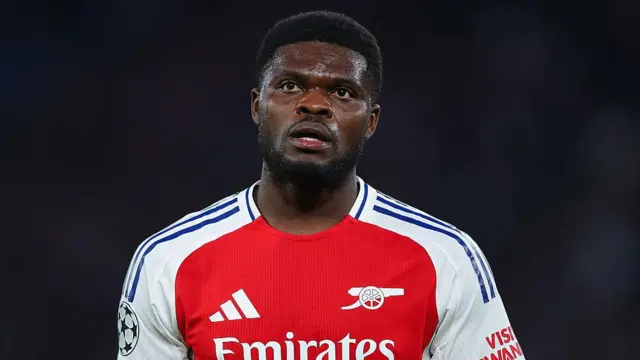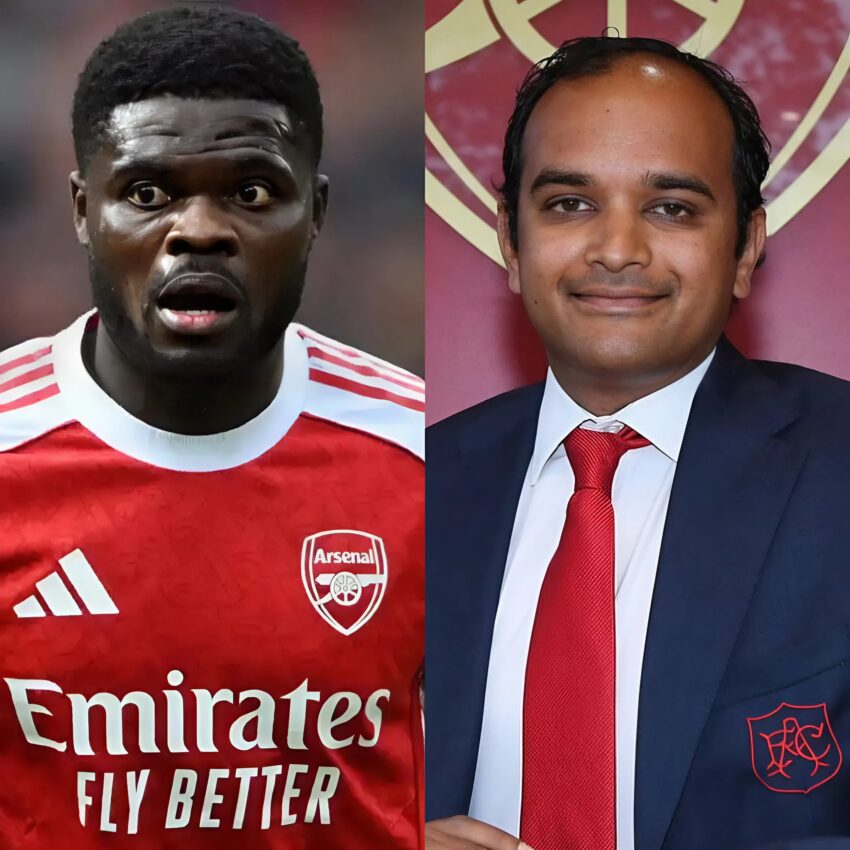In the high-stakes world of Premier League football, image is everything — especially when scandal threatens to engulf a key player. That’s precisely the storm Arsenal Football Club faced when explosive allegations emerged surrounding Ghanaian midfielder Thomas Partey. While the football world watched in suspense, Arsenal responded not with press conferences or moral grandstanding, but with calculated silence. Behind closed doors, however, a highly coordinated effort was underway — and what has now come to light has left fans, pundits, and legal observers alike completely stunned.

The allegations against Thomas Partey surfaced in mid-2022, when anonymous reports began to circulate on social media implicating a Premier League player in a serious criminal investigation. It wasn’t long before fans, internet sleuths, and tabloid outlets began connecting the dots — with Partey’s name repeatedly mentioned, though never officially confirmed by police or Arsenal at the time. The situation was made more complex by the fact that no formal charges were ever filed against the midfielder, allowing the club plausible deniability in the public eye.
But behind the veil of official silence, Arsenal was moving swiftly — and strategically. According to insiders close to the club’s legal and PR teams, executives immediately launched a two-pronged internal response: legal containment and brand protection. A tight-knit legal advisory group was assembled, reportedly including outside counsel with experience in managing high-profile sports-related legal crises. Their task? To monitor every development of the police investigation, ensure the club’s actions remained within the bounds of employment law, and above all, avoid any public statement that could implicate the club or expose it to defamation or wrongful termination claims.
Simultaneously, Arsenal’s communications department went into overdrive. Instead of public condemnation or overt support, they chose a third path — strategic ambiguity. Partey continued training with the squad and was included in matchday lineups without any official comment. This “business as usual” posture sent a strong message internally: until proven guilty, Partey would remain a club asset. Yet externally, it kept Arsenal’s hands clean and avoided fanning the flames of a media circus.
)
One key decision — and perhaps the most controversial — was Arsenal’s decision not to suspend Partey during the height of public scrutiny. While some clubs might have placed a player on temporary leave, especially with such serious allegations in the air, Arsenal instead opted to protect their competitive edge. Sources suggest that Mikel Arteta was directly consulted and ultimately supported keeping Partey on the field, citing the lack of formal charges and the importance of due process. Still, that decision sparked outrage among a segment of fans, many of whom demanded transparency and accountability from the club.
“It felt like the club cared more about league points than principles,” said one season-ticket holder who has followed the team for over a decade. “Even if there was no official confirmation, the rumors were everywhere. It felt cowardly not to address it.”
Others, however, defended Arsenal’s quiet approach. Legal experts have pointed out that suspending a player without charges can invite lawsuits, while issuing statements amid a criminal investigation can be interpreted as prejudicial — not only damaging to the player’s rights but potentially exposing the club to litigation.
Months passed. The media storm eventually quieted. No charges were brought against Partey, and the player remained a regular fixture in the team. Arsenal’s silent strategy had worked — at least in legal terms. But reputationally, the scars remain.
A recent internal leak revealed that several senior staff members pushed for a more transparent approach early in the crisis, including at least one board member who believed a temporary leave of absence would have been a show of integrity. That suggestion was reportedly overruled.
So why does this still matter?
Because it reveals a fault line between corporate interests and ethical leadership in modern football. Arsenal’s handling of the Partey case wasn’t just a response to a legal dilemma — it was a blueprint for how top-tier clubs might navigate future scandals. In an era where players are brands and clubs are multinational corporations, silence can be more powerful — and more chilling — than words.
Now, as the dust settles, fans are left to wrestle with an uncomfortable question: Did Arsenal do the right thing? Or did they simply do what was safest for their bottom line?
In a league where every point counts and every scandal could mean millions lost, perhaps the real takeaway isn’t what Arsenal did — but what they didn’t do.
And in that silence, a message was heard loud and clear.

